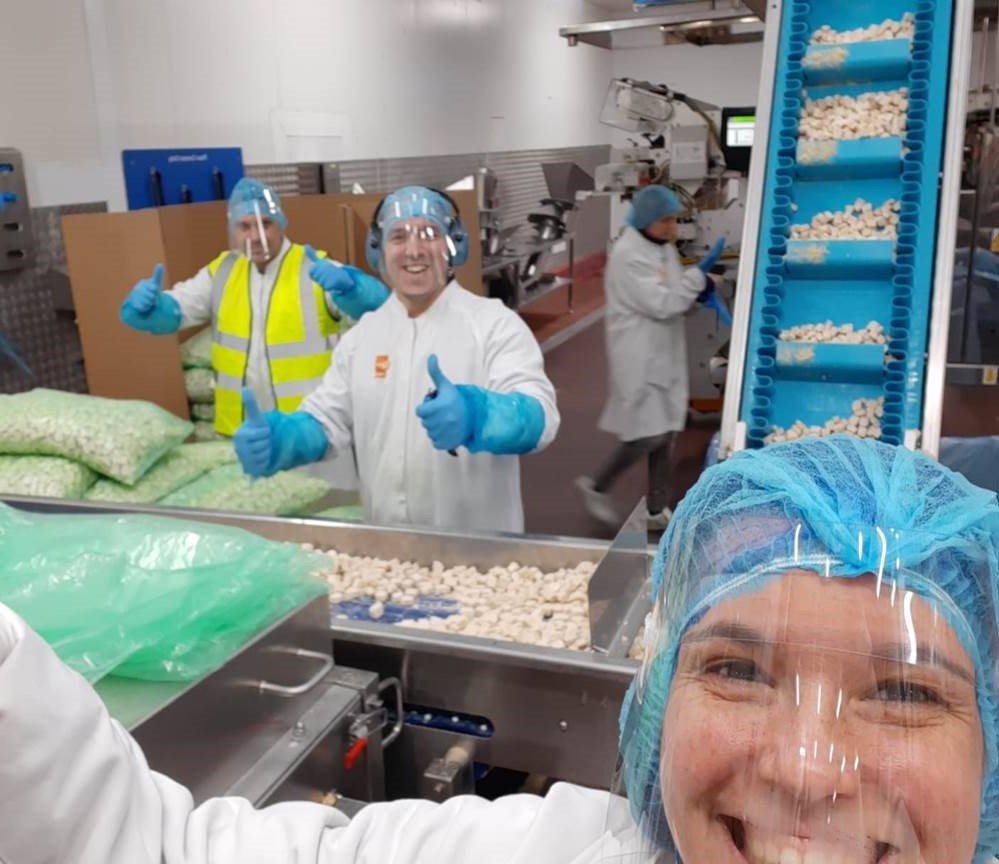US retail sales of plant-based meat alternatives were already on the rise before the pandemic hit. Then, in March, sales soared amid the spurt of panic buying as consumers prepared to shelter at home for an unknown amount of time.
Sales of plant-based meat grew 148% in the biggest two-week panic-buying period in March, over the same period last year, according to data from the Plant Based Foods Association and SPINS. Sales growth rates leveled off in the following weeks, but continued to exceed the growth rates for both total food sales and animal-based meat sales.
“I think existing drivers were heightened as consumers sought healthier options,” said Julie Emmett, the PBFA’s senior director of retail partnerships.
People were suddenly cooking at home most of the time, so many were also looking to try new things, she said. And reports of animal-based meat shortages and higher prices in some areas also likely spurred more consumers to try plant-based alternatives.
Growing safely in the age of COVID-19
Plant-based meat companies say they responded to the growing demand by ramping up production while at the same time taking care to keep the employees who make their products safe at work.
Unlike some animal meat plants that have been high-profile hotspots for coronavirus outbreaks, many plant-based meat companies have found ways to maintain physical distancing and put other precautions in place to keep COVID-19 at bay thus far.
“As soon as it started, we were early and we were aggressive in combating this,” said Dan Curtin, president of Greenleaf Foods, the parent of brands Lightlife and Field Roast.
At its plants in Seattle and Massachusetts, the Chicago-based company started checking temperatures, banning visitors and going above and beyond in providing personal protective equipment, he said.
In addition to masks and gloves, employees wear smocks and have become even more aggressive than usual on hand washing. Social distancing was put in place where possible, including staggering start times and breaks to minimize the number of people in break rooms.
“We were fast, we were early and we wanted to make sure our employees stayed safe.”
As a result of those measures, the company had just one of its 550 employees test positive for the coronavirus, he said. The employee has since tested negative and is back at work.
Another high-profile plant-based meat company, Tofurky, likewise reported just one employee who tested positive, even as the company ramped up production to meet growing demand.
“We took it very seriously from the beginning,” Tofurky CEO Jaime Athos said.
The company had about 210 employees before the pandemic and has added more to ensure it could meet demand while allowing for workers who aren’t feeling well to stay home. Tofurky has been adamant from the start about telling workers who have symptoms to stay home, he said.
When one employee did test positive, the company already had steps in place to deal with it.
“We went through all the normal steps,” Athos said. “Closing down areas for cleaning and, through contact tracing, we learned that person didn’t come into close contact with anybody at Tofurky.”
Being proactive has also involved an educational component to keep employees informed about the pandemic and changing conditions, Athos said.
“I think initially, when people were coming to understand the magnitude of the pandemic, they were very worried. Pandemic is a big word,” he said.
Talking with employees about their fears and the reasons behind the precautions the company was taking went a long way toward reassuring people, he said.
The PBFA has provided guidance and a place for members to share ideas and advice. Weekly Zoom calls are open to all members, and the association brought in experts to help member companies find solutions during the crisis, Emmett said.
When employee safety is part of the mission
UK-based Quorn has sold its products in the US for 18 years and those two weeks in March brought new all-time sales records, said Ben Sussna, Quorn’s head of US marketing.
Then, in May, meat shortages drove higher sales of Quorn’s ground beef substitute, which became the brand’s top-selling item for several weeks, he said.
Unlike Tofurky and Greenleaf, much of Quorn’s production happens in the UK, with about half the products finished by US-based contract manufacturers.
The company’s UK factories implemented the same precautions to keep employees safe, and even featured staffers wearing gowns and face shields in a social media campaign.
“We’ve made some changes to the way our plants are set up and our ways of working,” he said. “We have the space to do that and the processes to keep everyone safe. We’ve taken the view that we’re going to protect our people first.”
All three companies interviewed for this story expressed similar sentiments about their missions, stressing the safety of employees as key to being able to keep growing to meet demand.
“So many in the plant-based space are passionate entrepreneurs,” Tofurky’s Athos said. “Their mission aligns with their own personal values. Concern about animal welfare, the environment and personal health shows they’re focused on others’ needs and that applies to employees too.”
If you enjoyed this article, you can sign up for Consumer Brands SmartBrief to get news like this in your inbox. For even more great news content, sign up for any of SmartBrief’s 275+ free email newsletters today, free.
